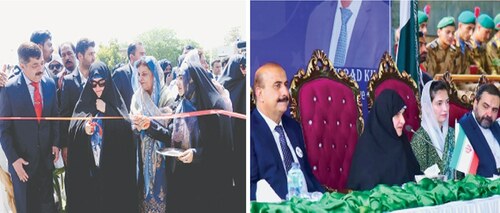ISLAMABAD, Dec 9: Former judge of the Lahore High Court (LHC) Justice (retired) Nasira Javed Iqbal on Monday called for doing away with Qisas and Diyat ordinance, which according to her, was a major cause of violence against women.
She was speaking at the national conference on ‘Women, Peace and Social Harmony’ held here at the end of 16-day activism campaign on ending violence against women by AAWAZ-Voice and Accountability Programme.
“Every year over 1,000 women are murdered in the name of ‘honour’. Society has to give awareness to women regarding their rights and legislation should be done to repeal the ordinance,” Ms Nasira Iqbal said.
Justice Nasira said in 1990 the Federal Shariat Court (FSC) declared some provisions in Pakistan Penal Code (PPC) are against the Islamic injunctions.
As a result of which, Qisas and Diyat law was introduced, which made murder a private matter and authorised relatives of victim to decide whether to punish or waive an offence of murder, she added.
“In the whole world, punishment is authority of the state but in case of Pakistan the law has been distorted and the authority is given to individuals. Samiya Sarwar case in the early 90s is the glaring example of the atrocities of Qisas and Diyat laws,” she said.
“Samiya came to Lahore from Khyber Pakhtunkhwa (KP) and started living in Darul Aman, where she was killed by her brothers in the presence of her mother. They (brothers) knew that that their parents would forgive them under Qisas and Diyat law,” she said.
Chairperson National Commission on the Status of Women Ms Khawar Mumtaz said despite terror threats the struggle for women rights would continue.
She said inter-provincial ministers coordination committee needed to be strengthened and must play a more active role in safeguarding woman rights.
Chairman Pakistan Ulema Council, Allama Tahir Ashrafi, said religion had become a tool to achieve personal and political gains.
The state is also silent about those elements who have occupied mosques and using religion as business, he maintained.
He also criticised the government for appeasing banned organisations. Laws exist to discourage hate speech and promote religious tolerance but are not implemented, he said.
“Things will not improve until the citizens stand up against ignorant and retrogressive forces who use religion for political purposes,” Tahir Ashrafi said.
“It was difficult for me to talk against Salman Taseer’s assassination, marriages of Hindu girls and DNA issue in Council of Islamic Ideology (CII), but I opposed all these, and such courage needs to be shown by all of us,” he said.













































Dear visitor, the comments section is undergoing an overhaul and will return soon.